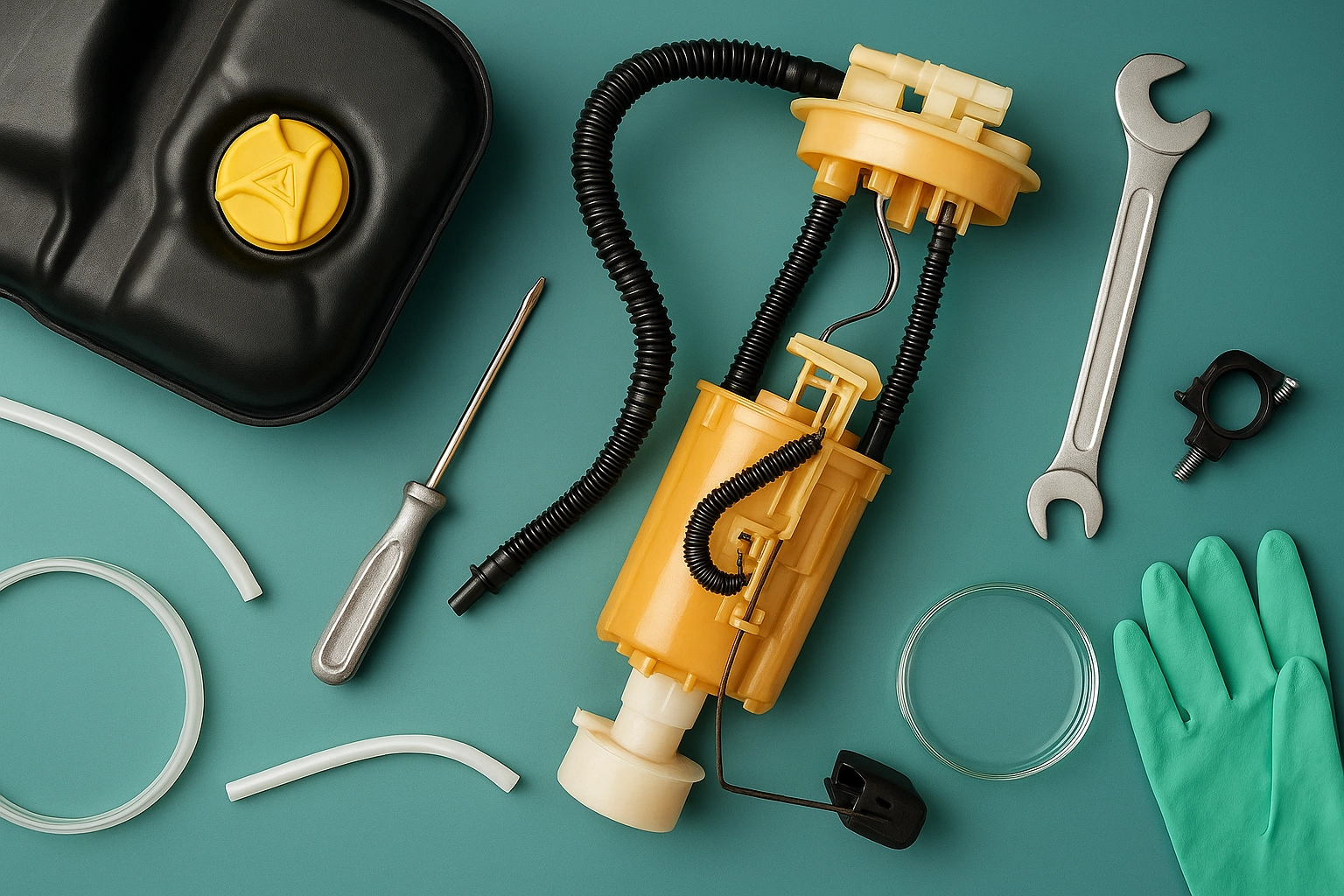SAE J1737 Fuel Permeation Compliance Test
The SAE J1737 fuel permeation compliance test is a critical procedure designed to evaluate the integrity and durability of fuel tank materials used in automotive applications. This test ensures that the materials can withstand the harsh environmental conditions and operational stresses encountered during the lifecycle of an automotive fuel system. The primary objective is to prevent fuel leakage, which could lead to safety hazards or environmental pollution.
Automobile manufacturers are increasingly focusing on reducing vehicle weight and improving fuel efficiency, leading to a greater emphasis on material selection for fuel tanks. SAE J1737 provides a standardized method to assess the permeability of materials used in these systems, ensuring that they meet stringent regulatory requirements set by bodies such as the Environmental Protection Agency (EPA) and the European Union.
The test involves exposing the specimen to a controlled environment simulating real-world conditions. This includes temperature fluctuations, humidity levels, and exposure to fuel vapor over an extended period. The permeation rate is then measured using specialized instrumentation to determine whether the material meets the specified limits outlined in SAE J1737.
The process begins with selecting appropriate specimens cut from the material under test. These pieces are then conditioned according to the standard procedures, ensuring they represent actual usage conditions accurately. Following conditioning, the specimens are placed within a closed chamber where controlled exposure to fuel vapor occurs over several days or weeks depending on the specific requirements.
During this time, permeation data is collected using gas chromatography techniques that analyze the amount of fuel present in the surrounding atmosphere outside the sealed chamber. This allows for precise measurement of how much fuel has permeated through the material during testing. Compliance with SAE J1737 requires demonstrating that no more than a specified threshold level of fuel passes beyond the test specimen.
Once completed successfully, this test provides valuable insights into both short-term and long-term performance characteristics of candidate materials for automotive fuel tanks. It helps identify any potential weaknesses early in the development process so corrective actions can be taken before mass production begins. Additionally, it supports continuous improvement efforts aimed at enhancing overall product quality.
By adhering to these rigorous testing protocols, manufacturers not only satisfy regulatory requirements but also contribute positively towards environmental sustainability goals by minimizing waste and preventing accidental fuel spills from occurring throughout the vehicle's operational lifetime.
Frequently Asked Questions
Eurolab Advantages
At Eurolab, we pride ourselves on offering comprehensive services tailored to meet the stringent demands of the automotive industry. Our expertise in SAE J1737 testing enables us to provide accurate results that help our clients achieve compliance while optimizing their product designs.
We utilize state-of-the-art equipment and follow strict protocols to ensure every test is conducted under controlled conditions. This consistency allows us to deliver reliable data consistently, which is crucial for making informed decisions during the design phase of new products or modifications to existing ones.
Our team of experienced professionals understands both theoretical aspects of material science as well as practical application challenges faced by engineers working on fuel tank systems. They bring this knowledge together when performing SAE J1737 tests, ensuring that each result accurately reflects real-world performance expectations.
In addition to conducting thorough evaluations ourselves, Eurolab also offers consultation services aimed at assisting clients throughout the entire process from initial concept brainstorming through final implementation stages. By leveraging our deep understanding of automotive fuel systems coupled with cutting-edge testing capabilities, we strive to exceed expectations in every aspect of our work.
Customer Impact and Satisfaction
The impact of successful SAE J1737 compliance extends far beyond mere regulatory adherence; it directly contributes to enhancing customer satisfaction by delivering safer products that perform reliably over time. When manufacturers can demonstrate their commitment to quality through rigorous testing like this, they build trust with consumers who appreciate knowing that they are purchasing safe and dependable vehicles.
Moreover, achieving SAE J1737 certification demonstrates a company's dedication to excellence in engineering practices. It showcases their ability to innovate while maintaining high standards of reliability, which is especially important given the current focus on sustainability and eco-friendly technologies within the automotive sector.
Customers value companies that invest in research and development efforts aimed at improving safety features and reducing environmental footprints. By working closely with Eurolab during SAE J1737 testing processes, clients benefit from expert guidance throughout the entire journey—from initial design considerations through final validation steps. This collaborative approach ensures that each stage of the project receives careful attention, resulting in superior outcomes.
Ultimately, our goal is to help our customers succeed by providing them with accurate and reliable data they can trust. Through meticulous testing procedures conducted according to internationally recognized standards, we ensure that every result meets or exceeds industry expectations.
Use Cases and Application Examples
- Material Selection: Automotive manufacturers use SAE J1737 tests early in the design process to evaluate different materials' suitability for fuel tank applications. By identifying which materials perform best under specified conditions, they can make informed choices that balance cost-effectiveness with durability and safety.
- Development Iteration: During the product development cycle, SAE J1737 testing helps identify issues early on so necessary adjustments can be made before costly mistakes are incurred. This iterative approach ensures that final products meet all required specifications without compromising quality.
- Regulatory Compliance: Many countries have regulations mandating certain fuel permeation limits for automotive fuel systems. SAE J1737 provides a standardized method to assess whether these requirements are being met, allowing manufacturers to easily satisfy regulatory bodies such as the EPA and ECE-Romania.
- Safety Enhancement: Preventing fuel leaks is crucial for maintaining vehicle safety and preventing potential accidents caused by hazardous spills or malfunctions. SAE J1737 tests help ensure that all materials used in fuel tanks are robust enough to withstand typical operating conditions without failing prematurely.





